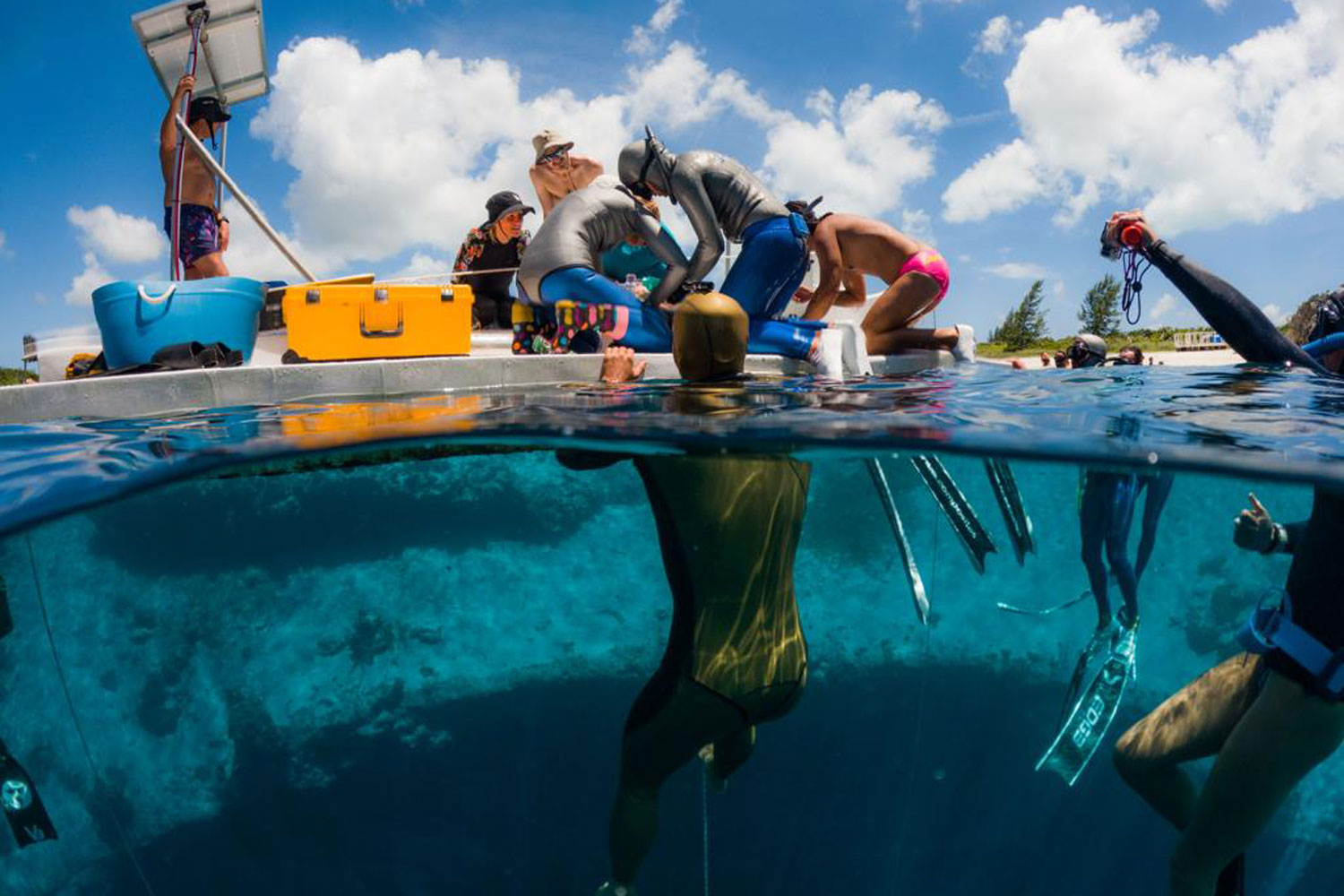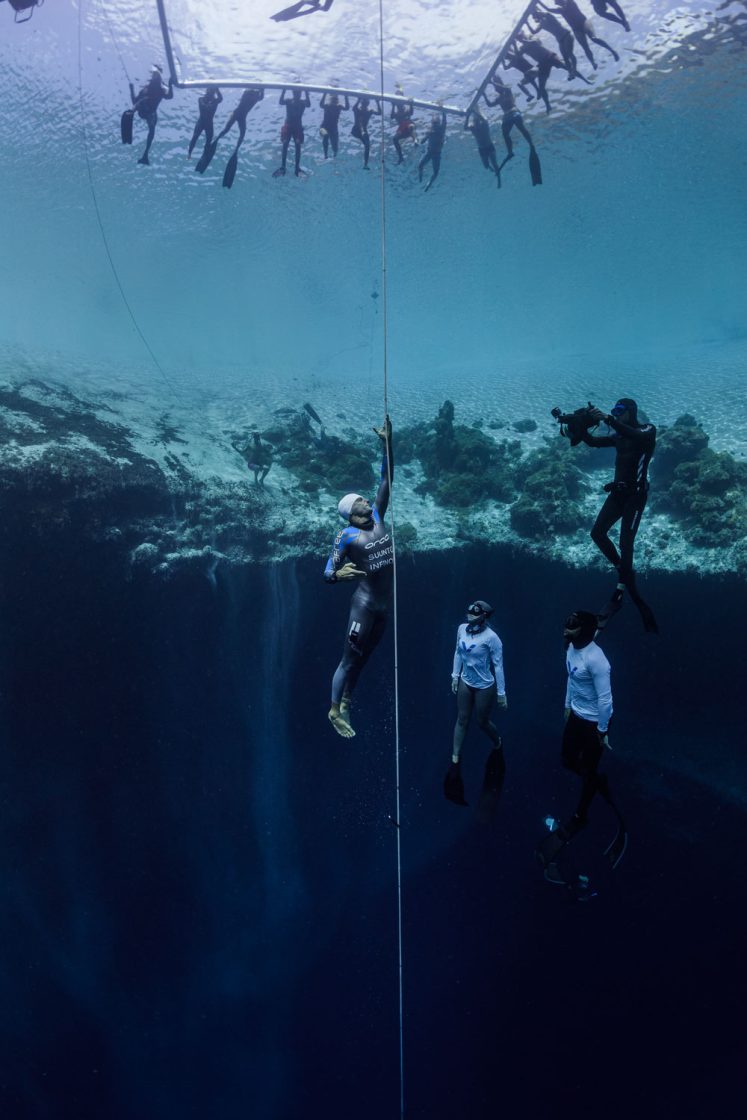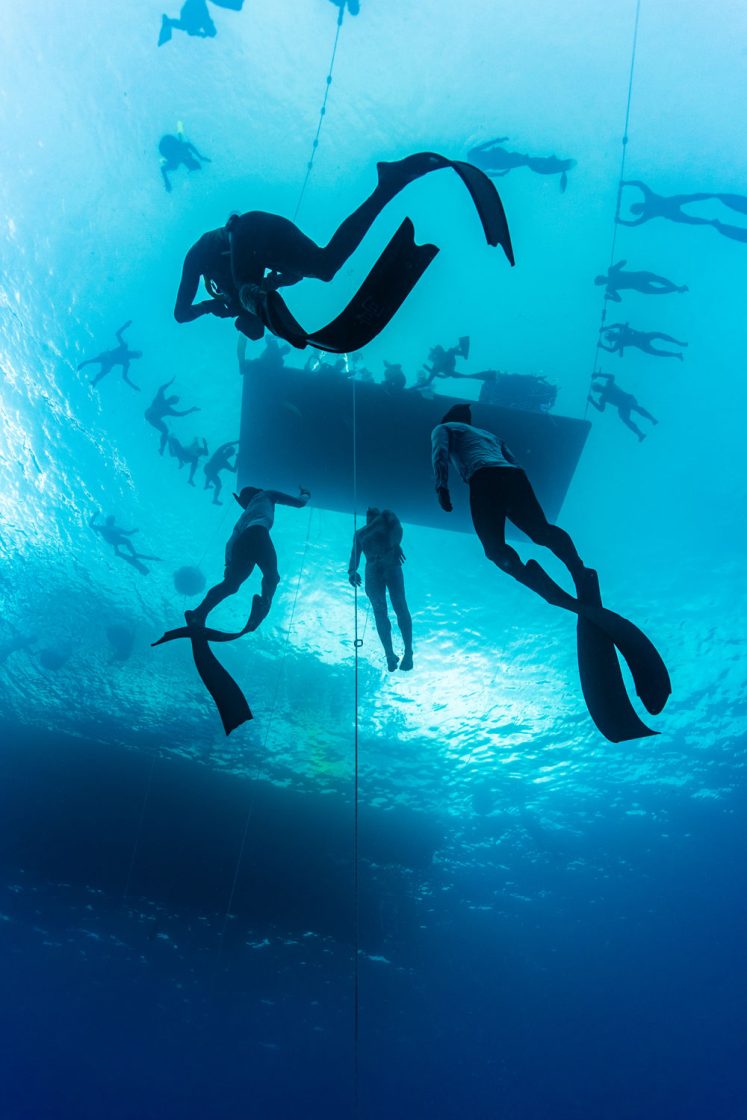Performance Enhancement in Freediving: Ethical and Medical Dilemmas
In this overview, we delve into the controversial issue of using Performance-Enhancing Drugs (PEDs) in freediving, examining the trends, potential benefits, and ethical implications within the sport.
This is a summarised version of the original article Doping for Depth: Performance-Enhancing Drugs in Freediving by Charly Stringer, first published on GUE’s blog InDepth.
In the world of freediving, where athletes constantly push the limits of human capability, the use of performance-enhancing drugs has recently emerged as a controversial and complex issue. This short article aims to guide the reader through the main issues related to the use of substances considered to be doping in freediving competitions: the rising trend of drug use, the claimed benefits, ethical considerations, and the regulatory challenges within the freediving community.
Rising Trend of Drug Use: A Deep Dive into Motivations
Competitive sports have a long history, with the first Olympic Games organised in 776 BCE. Freediving, historically a means of food acquisition, became a competitive sport only in the 1950s. Notably, in 1967, Bob Croft defied expectations with a breath-hold dive beyond 60 m/200 ft, challenging perceived human limits. By 2023, freediving records exceed 130 m/426.5 ft (constant weight) and 214 m/702.1 ft (No Limits). The community has made strides in efficiency, safety, and accessibility, yet the influx of high-level athletes has raised concerns about performance-enhancing drugs (PEDs). Limited testing resources and potential loopholes may contribute to a perceived risk of PED use among record holders.

Prohibited Performance-Enhancing Substances in Freediving
Freediving competitions, recognised by AIDA and CMAS, enforce a ban on substances listed by WADA. Notable prohibited PEDs for freedivers include Beta Blockers, Steroids, EPO, Glucocorticoids, and Diuretics. Dr. Jani Valdivia, a freediving doctor and neurosurgeon who has been consulted by the author, highlights their effects on performance.
CMAS added Benzodiazepines and Sildenafil (more commonly referred to as Viagra) to their banned list, following the Vertical Blue Scandal, earlier this year. Benzodiazepines aid relaxation, crucial for equalisation during the dive, while Sildenafil’s potential benefits remain uncertain. Dr. Valdivia emphasises the substance-dependent duration of use and the time required to clear a drug test.
Enhanced Anti-Doping Measures at Vertical Blue 2023
In an interview with William Trubridge, organiser of the Vertical Blue freediving competition, he revealed the implementation of additional doping policies for the 2023 event. Athletes had to sign an agreement, consenting to off-season testing for urine and blood, along with gateway checks upon arrival in the Bahamas. Despite benzodiazepines not being on the WADA list initially, Trubridge chose to provisionally test for them. The decision on who to test or search is not random; it involves profiling based on intelligence about the athletes. Trubridge explained that random testing is less efficient and costly, with drug testing being an expensive process. While there are no standardised rules for testing, event organisers can decide on protocols. Complaints from Croatian athletes accused of doping centered on feeling singled out and a perceived conflict of interest involving Trubridge participating in the search while also competing.

Growing Doping Concerns in Freediving: An Inside Perspective
Allegations of doping in freediving are not new, with recent cases involving Croatian athletes and three suspensions in 2022 by AIDA. Speculation about the extent of doping exists, but few are caught, raising questions about the prevalence. Trubridge, previously dismissive of doping’s presence, now acknowledges it as a significant issue, likening it to a metastasising cancer. Urgent improvements in testing are needed to address the escalating problem in freediving.
Mitigating Doping Risks in Freediving: Strategies and Consequences
Doping poses a significant threat to the integrity of competitive sports, and the freediving community is not immune to the challenge. Unlike blood tests, which could enhance accuracy but face logistical hurdles, offseason tests emerge as a viable solution, according to both Trubridge and Dr. Valdivia. Emphasising transparency in procedures and advanced communication, they believe these measures can deter potential doping.
Extreme repercussions, such as a lifetime ban, are advocated by Trubridge as a means to reduce doping risk. He contends that doping not only undermines fair competition but also endangers the lives of both athletes and safety divers. Moreover, using PEDs may void dive insurance coverage, raising further concerns about the consequences for individuals engaging in doping practices.
Marta Marrocco, DAN Europe Case Manager, highlights in particular the potential insurance implications. Terms and conditions of DAN Europe insurance state in the exclusion section the Claims caused by or arising from “Wilfully self-inflicted illness or injury, the influence of intoxicating liquor or drugs (except drugs taken in accordance with treatment prescribed and directed by a registered medical practitioner other than for drug addiction)”.
Marrocco elaborated by saying: “I would say that, in case for example a diver would have a bad reaction to a doping drug and this drug has not been specifically prescribed by a doctor, then the insurance company would have all the rights to deny the reimbursement of the medical expenses based on the previously mentioned exclusion”. She continued: “Each accident needs to be considered as unique and evaluated based on the documents related to it”.
The freediving community’s close-knit nature contributes to the passionate response to doping allegations. While social media can be a double-edged sword, potentially leading to premature judgments, it may also serve as a deterrent, discouraging potential cheaters who fear the community’s vocal opposition.
In conclusion, addressing doping in freediving requires a multifaceted approach, including stringent testing protocols, severe consequences, and community solidarity.

Risks of PEDs in Freediving
Using PEDs in freediving poses serious health risks and undermines fair competition. Dr. Valdivia emphasises the danger, urging their avoidance in official events. Anabolic steroids misuse can lead to long-term issues like heart problems, while benzodiazepines’ addictive nature and central nervous system depression raise concerns. Sildenafil, though not clinically proven, might heighten decompression sickness risk. Limited research on PEDs in freediving and the sport’s unique demands make the risks even more perilous. Unlike other sports, freediving’s emphasis on relaxation requires different PEDs, used in a challenging underwater environment. A gradual, disciplined approach to becoming a top-level athlete is the way to go, highlighting the importance of health, self-awareness, and dedicated training over risky shortcuts.
Photographers
Pepe Salcedo: https://instagram.com/blackfinfreediving?igshid=MmU2YjMzNjRlOQ==
Andre Musgrove: https://www.andremusgrove.com/ | https://www.instagram.com/andremusgrove/
Mark Tilley: https://instagram.com/_mr_tilley?igshid=MmU2YjMzNjRlOQ==
Main image photo is by Daan Verhoeven: https://instagram.com/daanverhoevenfreediver?igshid=MmU2YjMzNjRlOQ==


